Snapshots
Day 1 Completed
Snapshots
Day 1 Completed
![[user326915]](/img/avatars/avatar.svg)
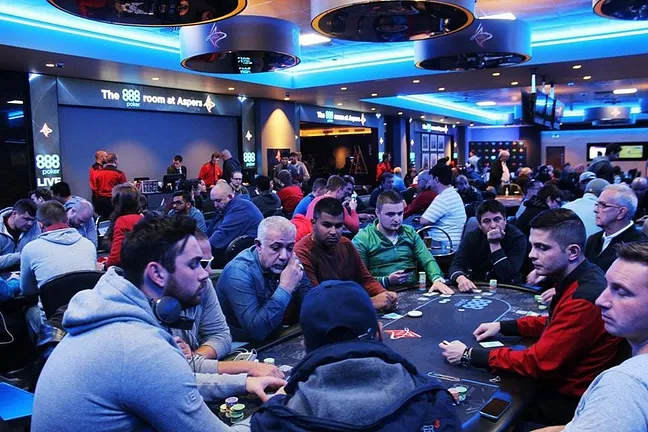
With so much time devoted to improving the mental game of poker by professionals, many people have suggested recently that fun is something we need to retain as a priority. But how much emotion is right in poker?
From celebrating winning a hand to performing at a peak level, emotion has always been one of the variations in poker. Some players are an open book, enjoying every hand on an emotional level. Others are closed books, only cracking a smile at the finish line, whenever it may arrive.
We took time out from the intensity of the closing stages of the Opening Event here at 888Poker's London Live festival to ask a few of our players which emotions are good in poker or whether they try to leave them at the registration desk.
Andy Wool: Poker is a game best played without emotion, feelings or bias. Although it's something I work hard at I'm naturally an excitable, outgoing guy, and poker is such a great game it's pretty easy to get excited by it - I guess that's what I love about it.
Arron Fletcher: I’m an emotional guy, but it’s a flaw in poker. I wouldn’t advocate it. I work on it a lot. I'm into the mental side of the game because I need to be.
So, should a player try to strip away the weakness of betraying emotions when playing poker? It would certainly help with bad beats. This reporter once filmed a television pilot for a series about players who lived in a house where all the players were online poker professionals.
It was noticeable how one player who had built up an incredible resistance to taking bad beats emotionally dealt with the business end of tournaments so much better than the others. Is a temperament that is without emotion one of the biggest skills a poker player can develop?
AF: I have many weaknesses in poker and work hard on improving them. You can train your brain to do anything, I definitely believe that.
Charles Chattha: I took a break after having a really bad Vegas. My mind wasn’t on the game. I let a few past events dwell on my mind, but I needed to take time out.
Time away from poker certainly helps the management of emotion, but whether the excitement and passion associated with poker will ever truly be removed from gameplay is doubtful.
AW: One of the most emotional tournaments I played in was a one €1,000 buy-in [taking place in] Cannes. I enjoyed every second, played with some top pros and even got some airtime on the stream. On the flip side of the emotional scale, there's nothing worse than the short sharp stab an ace on the river can provide in a big pot deep in a big multi-table tournament.
However much a bad beat can hurt, or how exhilarating it can be to win a vital pot in dramatic fashion, keeping control of your own emotions at the table is +EV. The greatest poker players would agree. Calmly.
![[user326915]](/img/avatars/avatar.svg)
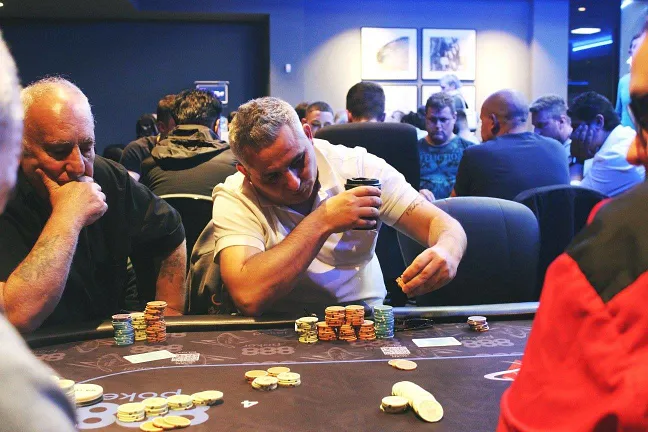
It's one of the hottest subjects in poker and has been for many years. When poker was reclassified as a mindsport in 2011, many players, observers and pundits were questioning of that classification. Poker was a game born as a gambling pursuit and forever should it be seen as such, they argued.
Others disagreed and point to the game of poker progressing from the aged romanticism of smoky, underground card games to a neon-lit world more in tune with video games than gamblers.
Should poker be seen as a sport or a game? As is it a good idea to 'sportify' one of the world's oldest card games? We spoke to some of our poker players at this week's 888Poker London Live Festival to find out.
Arron Fletcher: I like the thought of poker being a sport. I definitely feel like I'm a professional and like to think I train like an athlete. I have the same type of work ethic and obsession that they do especially lately.
Andy 'danwhiteninja' Wool: I played for Ipswich Town FC, and was a scratch, county golfer. You can't get away from the fact that poker is gambling, but I hate to call it gambling, being a semi-professional. I like to think I have some control over winning and losing, and I do. Gambling infers a game of luck, fixed odds set against you such as those associated with a game like roulette.
Charles Chattha: In my opinion, it's a sport. In the long run, it's 70% skill, and 30% luck. It's more geared towards a sport.
Marketing the game has become so much more geared towards sport, with advertisements, television and even participants linked with sport for a long time. Footballers like Cristiano Ronaldo, Neymar and even Teddy Sheringham, who has been playing in the Opening Event at this week's 888Poker London Live Festival.
Teddy Sheringham: It's not really a sport, is it? The game has generated from gamblers wanting to play something different. It's not a sport.
Steve Watts: It's so fifty-fifty. You can play it with your mates and it would be recreational and you can play it professionally and it could be like a sport. But it's never going to be in the Olympics, is it?
AF: In my own world, I consider myself a sportsman, but in the real world, it's hard to justify. I'd be more a professional Monopoly player than a hurdler!
Poker was reclassified, but not everyone who plays the game knew that it happened. The International Federation of Poker even held events at the time, including a game of poker where the London Eye was filled with poker players playing the same deal each hand for an orbit. The results indicated a highly skilful game rather than a gambling pursuit.
AF: I much prefer the term mindsport! If chess and backgammon are considered a mindsport, then so should poker be.
CC: The cream always rises to the top. Overall, it's a sport.
What do you think? Do you agree that poker is a mindsport, or will it always be the greatest gambling pursuit on Earth?
![[user326915]](/img/avatars/avatar.svg)
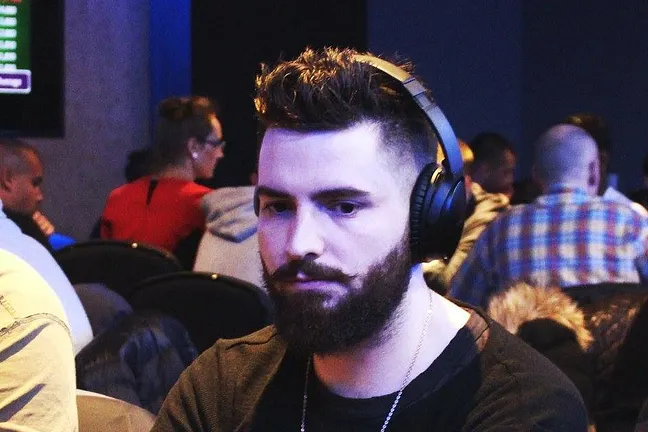
Arron Fletcher definitely represents the new breed of poker player. He admits that he has an obsession with the game, but it’s not in the gambling sense. He’s a student of every aspect of poker, from physical to mental improvements, strategies and tactics.
Over the last five years, Fletcher has gone from online and cash game hopeful to making a lucrative living from live cash games and backing players. At the table, he is precise, calm and focused. Away from the felt, he is a bag of emotions, expressive, passionate and human in every sense. How does he marry the two and live his life as a poker professional?
“I have two bank accounts that are titled self-employed sportsman, but I’d be lying to myself if I said I was a sportsman. I do try to be the best I can. There’s a lot of pain involved. I go through an array of emotions between loving tourneys and thinking I’ll play everything then busting tourneys and saying I’ll never play another one again. That happens pretty frequently. I’m an emotional guy, but it’s a flaw in poker. I wouldn’t advocate it for poker players [to be this emotional].
So what does Fletcher do to improve his game in this key area?
I work on it a lot. I have my own methods, I’m someone who’s into the mental side of the game because I need to be. I have many weaknesses in poker and work hard on improving them. You can train your brain to do anything, I definitely believe that. I’m forcing myself to play just tournaments for a month. In my mind, it’s gone fantastically. I don’t discuss profit/loss short term because it’s irrelevant. I’m a smart investor, though. I always care about my horses. I’m conscious of improving all the time.
Fletcher took part in the WSOP Main Event for the first time this summer as he went to Las Vegas and followed in the footsteps of thousands of other players in trying to take down the biggest tournament in poker.
“It’s not the toughest tournament in the world! I had some superstars telling me I had a hard table, but I loved it. I didn’t know many of their names, but I played with Pratyush Buddiga. He looks like he was in the Spelling Bee! It was fun to three-bet him a lot and to play deep-stacked poker was great.”
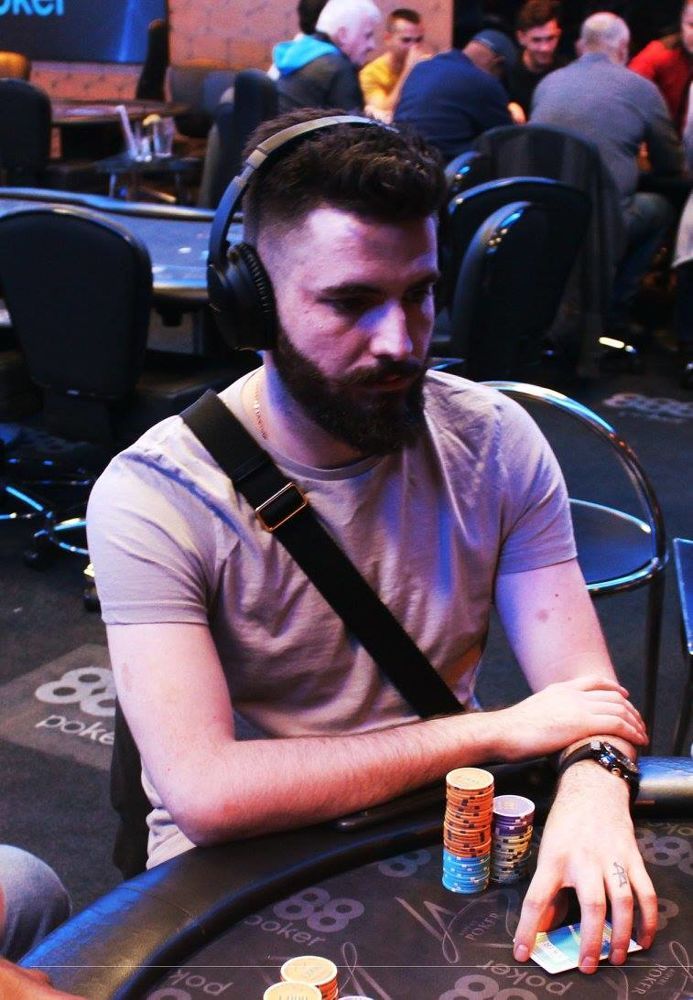
How does an emotional person deal with the pressure and hope of the Main Event?
“I was determined not to be emotionally invested in it. Everyone says it hurts the most, that when you bust the Main Event, it’s the hardest moment of the year. I planned to post a status on social media saying it didn’t hurt a bit and these professionals need to ‘get over it’. But it hurt so badly when I busted, it felt like a train hit me! I thought ‘OK, it’s a new experience for me’. It was on Day 3 but before the money bubble. I don’t know why it hurt.”
We had to know - was it a bad beat?
“I don’t believe in bad beats, there’s no such thing. Our friend group don’t accept them, listen to them or say them, even subtle ones where people announce ‘It’s not a bad beat’, but you know it’s coming. It’s not accepted.
When we all went to Barcelona, we had a genuine fining system whereby anyone who told a bad beat lost €20. No-one told one… it’s a good idea. Some things are considered bad beats, a rant is … fine. We don’t talk negatively about bad stuff that happens, only good stuff. I think poker players can attract too much negativity instead of positivity.”
Are bad beat stories and players who speak of playing ‘perfect poker’ signs that someone isn’t a professional?
“I was watching Twitch the other day and I saw a notable professional doing a marathon for charity. First of all, that’s a great thing to do and I’m pleased that he raised money and everything. But he was whinging and bitching about bad beats. He’s a really established professional and he was whinging ‘How bad do I run?’ and ‘It’s so sick, so sick’.
I could not believe it. I was so shocked. He’s a fish, I don’t care what anyone says. That’s a fish! People are in the chatbox crying and bitching too; what are those people doing?! How lucky he is to be alive, let alone playing a game, streaming on Twitch and being a good, recognised professional? I lasted five minutes and I was gone, I had to turn it off! My life is about positivity and people who are particularly negative tend to have a short life-span around me right now!”
Fletcher is clearly someone who wears his heart firmly on his sleeve. He has been through the mill in poker terms, but has emerged a professional and is looking to make his mark on the game in a big way. One thing you can be sure of if he manages it will be how much he enjoys every second.
![[user326915]](/img/avatars/avatar.svg)
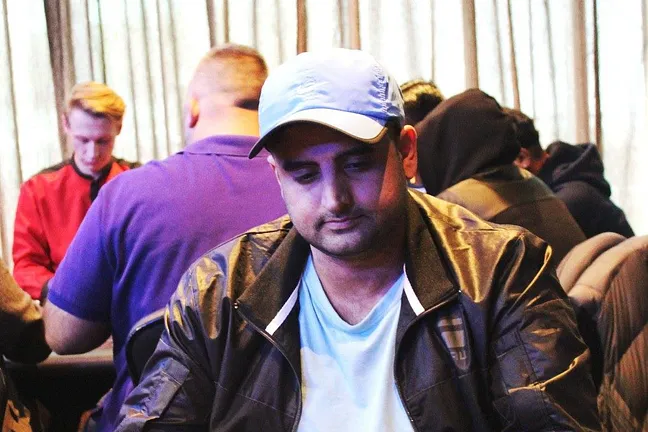
We have been sitting down with some of the biggest names in poker during the 888Poker London Live Opening Event and one such player was Charles Chattha. Having been on his annual trip to Las Vegas for the World Series of Poker, not much was seen of the ebullient Londoner on the circuit – until this weekend, when he arrived at Aspers for the first tournament in the 888Poker London Live Festival. We found out why.
“I took a break after having a really bad Vegas. My mind wasn’t on the game.” Says Chattha, as ever, devastatingly honest about his own game. “I let a few past events dwell on my mind, but I’ve got past that after a couple of months break. A fresh start is important, I needed to take time out. Last year, some players might have cashed for $1.5 million with the hands I’d had, but I didn’t.”
One of the biggest disappointment for Chaz was a tournament out in America where he walked into a chest freezer of run bad.
“I played a $2,000 tournament and knocked out Ole Schemion and Timex. These are two of the best. Funnily enough, whenever I’ve been away, and I am getting back on the road to play poker, I watch a lot of televised poker. And if they ever have a European Poker Hall of Fame, Johnny Lodden has to be the first player inducted. Ole Schemion and Fedor Holz would be second and third! I’m chip leader out of nine, having eliminated them in 13th and 12th and I’m thinking ‘Who can beat me now?’”
Confidence has always been a crucial part of Chattha’s game, but in the summer, in Vegas, it was punctured.
“I had 70 big blinds, another player had 50 big blinds, but everyone else had 20 bigs. If you came fifth, you got $24,000. I lost all-in pre-flop with aces and against kings. It happens. The very next hand, however, the same player raised under the gun, I still had 25 big blinds, and was still third in chips. I moved all-in, he called, I had kings, he had Ace-King, and he hit an ace. I was knocked out in two hands. I cashed for $7,000. How brutal is that? The Main Event didn’t hurt me much – that bust-out hurt me more! The eventual winner told me that he’d never seen such a thing in 25 years.”
As a professional, a beat like that can still sting. So how does someone like Chattha, with over a decade of live experience, cope with such setbacks?
“It takes time to recover. I don’t consider myself a wealthy guy. I support my family, but for me, that’s a lot of money. When I make the final table in that sort of tournament, I’m expecting to win it. Even if I came fifth, $24,000 for a $2,000 buy-in is a great result. But ninth for $7,000 didn’t feel the same. Now I’m grinding smaller buy-in tournaments.
He’s been playing professionally for ten years, a long time in poker. Is he later happy, and would he have wanted to be a big part of the industry after ten years if we’d asked him as a 24 year-old?
“I would say 50/50. I’ve been with my missus four years, she supports me so much. She used to be in the industry and that helps. At the same time, can I deal with the swings of poker? When I was younger I could play all day long, but I’m 34 years old now, I have a mortgage and living expenses.”
Chattha, for all of his experience, has always been a tournament player. They have way more variance and drama than grinding cash games. So why doesn’t he embrace cash games?
“I’ve stopped playing cash games. It doesn’t suit my lifestyle so much. I’ve a lot going on with my family businesses, and to be honest, I ‘ve always been a tournament player. Some are happy with a steady curve upwards, but I’ve always been after a shot at glory. That top prize has always been attractive to me. It goes back to my Hit Squad days, with James [Akenhead], Praz [Bansi] and Sunny [Chattha, Charles’ brother]. For me, this Opening Event is great value. For £220, you can try and win £24,000 – that’s great, great value.”
Over the years, Chattha’s game has no doubt improved by having so many friends going through the same things in poker. But he’s also become a key support to players too.
“Steve Watts, Danny Laming, James Akenhead and obviously the Hit Squad are my best friends in poker. But it has become a community. If anyone comes to me and asks me for advice, I’lll give it to them. Alex Spencer and Danny Tang are two up-and-coming players. I invest a bit of money in Danny and he does very well. These boys are good. I tell them they need to be disciplined. They’re listening!”
Who wouldn’t listen to someone with ten years’ experience in any profession. Make no mistake. Every time he plays, Chaz Chattha is going to work. He’s after that shot at glory and the biggest titles in the world of poker, but to him, it really is another day at the office, because at the poker table is where he does the business.
![[user326915]](/img/avatars/avatar.svg)
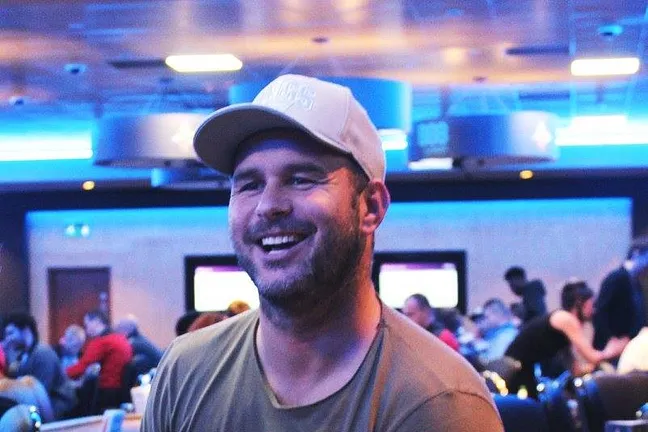
The poker table is a place for everyone from all walks of life. There are quiet people and loud people. Some love to interact with other players and some don't. We spoke with four of the biggest personalities during the Opening Event here at the 888Poker London Live Festival and found out what makes them tick when it comes to talking poker at the table.
We started by asking our players what they thought of the Will Kassouf hand at the World Series of Poker Main Event. In case you've been living in a cave, Kassouf was involved in a controversial situation when tournament director Jack Effel gave him an orbit's penalty after he used table talk to induce Stacy Matuson into a crucial fold. Had she called, Kassouf may well have missed out on his 13th-place finish, but the poker world is split on whether his talk (and subsequent hand motions) were OK. We're British - but are we fans of being more reserved than the legendary "Nine-high like a boss!" player?
Arron Fletcher: I think the Kassouf hand was blown out of all proportion because it [involved] a female player which is highly sexist and silly. If you can't handle it, don't play. He's obviously annoying, but I really like him. It's entertaining and if it wasn't for him, the WSOP Main Event would be unwatchable. Will Kassouf is fine, and I love it.
Steve Watts: Love the 'Nine high like a boss'! I want as much banter as possible. Swearing, cursing and bullying people isn't good, obviously, but any table talk that encourages people into calling or folding is good.
Each of our four players have their own style. Teddy Sheringham is naturally more reserved at the table, for example, while Watts and Chattha can often be heard discussing hands, football, and news within the poker industry.
Teddy Sheringham: I think everyone has their own rules. It's like celebrating a goal in football; some have extravagant celebrations, some haven't. That's just the way it is.
Chaz Chattha: I think full banter should be encouraged, everything goes. You shouldn't take playing the game too seriously, I don't personally. I like to have fun. Obviously if you're playing for big money, sometimes, you take it a bit more seriously, but at the same time, you have to play the game in good spirits.
If there is a limit in terms of talking, maybe it comes down to that celebration of a winning hand. In poker, even more so in life, one player's gain is quite literally at the cost of another, no chips are ever won without being lost by another person. So can talking turn into berating a player if you're not careful?
AF: I don't know what's too much. Some people deserve berating! But really, most of the people doing the berating are bad players and you don't want to stop them having fun! It's the same view I have as about slowrolling, if that's what gives them kicks then it's fine.
Times change in poker, of course. There was a time when it was almost expected to be part of the action at a live poker table.
SW: I started the game in the Jamie Gold era and I used to use table talk all the time, but I'm quieter now. I feel like I have a stronger game. Before I used to be carefree and muck about. When they're not that good, they talk, but Will Kassouf has improved a hell of a lot.
All four of our players will be looking to celebrate victories in the forthcoming £880 Main Event and £2200 High Roller events as part of this week's incredible 888Poker London Live Festival. We look forward to seeing how they celebrate winning a crucial hand or even the tournaments themselves!
![[user326915]](/img/avatars/avatar.svg)
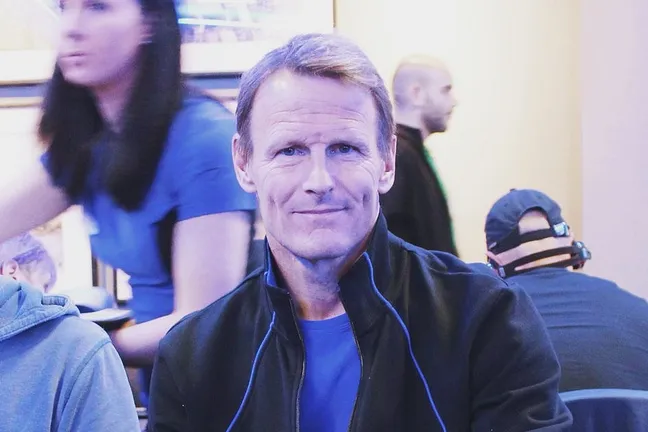
We caught up with some of the big names and passionate players at the 888Poker London Live Festival here in Stratford and spoke to them about the burning issues in poker.
One hot subject in poker right now is definitely whether there should be a 'shot clock' in poker. Should players have the right to take as long as they like over every hand in live poker? Or is a prevalence for taking too long over decisions ruining the cut and thrust of competitive game play? We spoke to former England, Spurs and Manchester United striker Teddy Sheringham alongside poker professionals Charles Chattha and Arron Fletcher to gauge the feeling of those who sit down at the felt.
Arron Fletcher: There's a shot clock online, so if it's done sensibly, then yes. You could just apply a bit more time to live.
Teddy Sheringham: I think poker needs something. I'd put a shot clock in most tournaments.
Charles Chattha: I'd have one. In normal games, I think it's fair if someone calls the clock and you have a minute.
But there's a difference between having the clock called on you in a key position like Stacy Matuson did at the World Series of Poker Main Event and a mandatory clock that is applied to every hand.
AF: If people want to waste time on hands, its really bad for poker. The more unwatchable the World Series of Poker Main Event gets. They're entitled to take as much time as possible. It's the most viewed television poker, but it's really bad that people take so long.
So how long is too long to think about a hand, and why should players who have experience make that decision. Would it benefit the amateur or recreational player entering the game? What is the perfect length of time for a shot clock?
TS: People are taking it to new levels now and sitting there thinking for five minutes. That happens far too often.
AF: For key hands, a little extra time would be right. I don't really mind too much - I go into my own world and I don't really call the clock that often now . I call the clock way more in cash games than in tournaments. I take longer now than I used to - I've got more to think about!
So is taking time as sign of inexperience or being professional to a certain extent? Where is the cut-off?
CC: It depends on the time. I'd say two minutes for every decision is fair. I think two minutes is the perfect amount of time.
AF: You should be allowed a time bank if there's a shot clock, for sure.
A shot clock and a time bank in a live event? Whether everybody would embrace such a move remains to be seen. One thing is for sure, unless there are shot clock tournaments that are readily available to the poker players who are looking for them, the debate will go on and players will discuss amongst themselves how best a shot clock could be initiated.
Snapshots
Day 1 Started